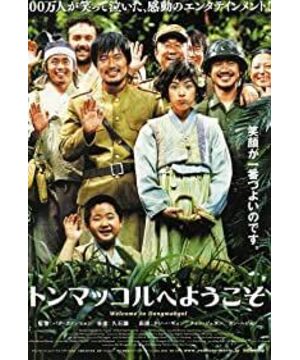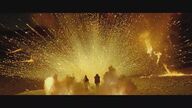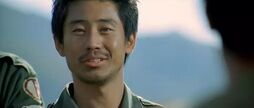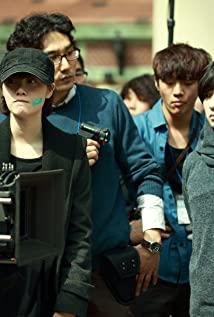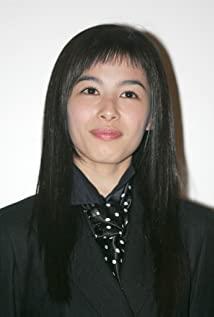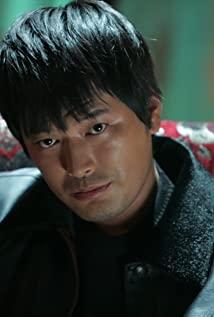The entire film is set against the backdrop of the Korean War.
North Korea and South Korea were originally a family, but they confronted each other because of their different camps. North Korean soldiers and South Korean soldiers used the same language and looked almost the same. On the battlefield, they had to draw guns to meet each other until they died.
In the film, whether it is the two deserters in South Korea or the three soldiers who survived the battle in North Korea, they all show the confusion of not knowing what to fight for. They don't know the cause of the fight, or where the fight will take their destiny. All they know is to obey the orders of their superiors unconditionally, even if the order is to blow up a bridge full of refugees or shoot at comrades who cannot walk...
They gradually hate war, and they hate themselves in war. But until they arrived at Dongmo Village, they changed into civilian clothes and went to work in the fields with the villagers. They still felt that this kind of life was very good, and gradually developed a unique love for this village.
Later, they formed an alliance together and became comrades-in-arms who could give their backs to each other. They are no longer confused, because they know the reason and meaning of cooperation, that is, protection, redemption, protection of beautiful things, and redemption of their past sins.
They burst into laughter as the gunfire overwhelmed them. They have never been so magnanimous, have never found such a sense of existence.
Dongmo Village was saved, and the villagers were still as innocent as the beginning. It's just that they don't know that those "uninvited guests" will never come back. They will always sleep on the snow-capped mountains, and they will always guard Dongmo Village and this pure land that is not disturbed by war.
View more about Welcome to Dongmakgol reviews


